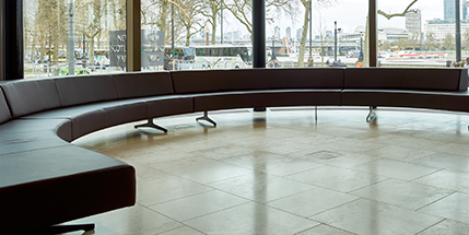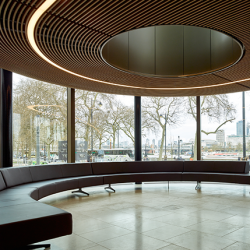January 17, 2018
One in ten people have fantasised about killing their boss
 A new survey of 2,200 people claims that one in ten have fantasised about killing their boss at some point. Construction workers emerged as having the worst relationship with their line managers with nearly a quarter admitting to murderous thoughts (22 percent), followed closely by those working in the media industry (15 percent). The report from B2B comparison site Expert Market claims that more than half of respondents (52 percent) said that they hate their job specifically because of their boss. In fact, one in five workers said that they would actually turn down a pay rise in favour of firing their manager and it’s because people think their boss is not fit for purpose. The majority of those asked (73 percent) believe that they could do their boss’ job far better than them, particularly those in the energy and entertainment industries; 86 percent and 81 percent, respectively.
A new survey of 2,200 people claims that one in ten have fantasised about killing their boss at some point. Construction workers emerged as having the worst relationship with their line managers with nearly a quarter admitting to murderous thoughts (22 percent), followed closely by those working in the media industry (15 percent). The report from B2B comparison site Expert Market claims that more than half of respondents (52 percent) said that they hate their job specifically because of their boss. In fact, one in five workers said that they would actually turn down a pay rise in favour of firing their manager and it’s because people think their boss is not fit for purpose. The majority of those asked (73 percent) believe that they could do their boss’ job far better than them, particularly those in the energy and entertainment industries; 86 percent and 81 percent, respectively.













 UK workers are still uncomfortable about having honest conversations at work, with nearly two thirds (61 percent) feel they keep an aspect of their lives hidden in the workplace. The research from Inclusive Employers found family difficulties (46 percent) was the most likely hidden issue at work, followed by mental health (31 percent). One in five also admitted they would hide their sexual orientation while at work. It also found a generational divide, with 67 percent of employees aged between 18 -24 years old keeping something secret compared to 55 percent of those over aged 55 years or over. The data, released to mark National Inclusion Week 2017, found this lack of openness can have negative impacts on workers and employers, with over a quarter of workers (26 percent) admitting they would feel less connected to their workplace if they hid an aspect of themselves and 18 percent saying their performance would suffer.
UK workers are still uncomfortable about having honest conversations at work, with nearly two thirds (61 percent) feel they keep an aspect of their lives hidden in the workplace. The research from Inclusive Employers found family difficulties (46 percent) was the most likely hidden issue at work, followed by mental health (31 percent). One in five also admitted they would hide their sexual orientation while at work. It also found a generational divide, with 67 percent of employees aged between 18 -24 years old keeping something secret compared to 55 percent of those over aged 55 years or over. The data, released to mark National Inclusion Week 2017, found this lack of openness can have negative impacts on workers and employers, with over a quarter of workers (26 percent) admitting they would feel less connected to their workplace if they hid an aspect of themselves and 18 percent saying their performance would suffer.









December 21, 2017
Commercial property is undergoing tech disruption, but not as some believe
by Polly Plunket-Checkemian • Comment, Facilities management, Property, Technology
According to a recent report, executives in the commercial property sector have significant reservations about emerging disruptive technologies such as Big Data and predictive analytics, augmented and virtual reality, Blockchain and driverless vehicles, but see huge potential for process automation. Disruption is a strong word. It conjures up apocalyptic images and radical interventions leaving unrecognisable outcomes in its wake. Big terms like artificial intelligence, Internet of Things (IoT) and big data bring equally big expectations. For those of us at ground level, it’s hard to see the cumulative impacts of the many changes taking place around us. It’s also hard not to share the same view expressed above. Future-gazing is nice to a point, but board level conversations like to take signposts from what is actually happening around them as well, and the commercial property sector is no exception. This sector is undergoing profound disruption but not necessarily from Silicon Valley’s headline grabbers.
(more…)